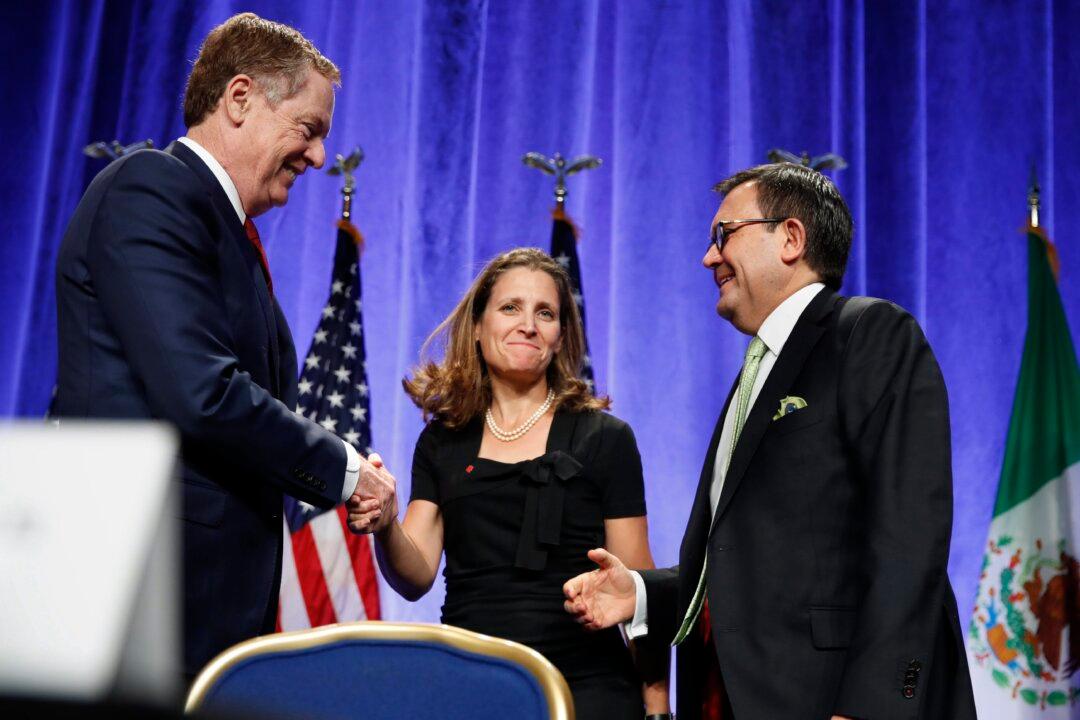Canada’s tech ecosystem will benefit from a long-overdue revamping of the North American Free Trade Agreement (NAFTA), though some thorny and complex issues need to be resolved.
“Modernize in accordance with technological revolution” is Canada’s first core objective for the NAFTA renegotiations, which began in Washington, D.C., on Aug. 16, as outlined by Foreign Affairs Minister Chrystia Freeland.
In the early 1990s, as the first iteration of NAFTA was being negotiated, the internet was virtually non-existent. Tremendous technological change began taking place in the mid-1990s, and then came mobile computing with the iPhone in 2007. Needless to say, 23-year-old NAFTA has a lot of catching up to do to account for the growth in the digital economy.
When it comes to North American trade, issues like supply management, auto manufacturing, and softwood lumber dominate the headlines, but it’s the service industry that accounts for 56 percent of Canada’s exports to the United States and represents more than 70 percent of the Canadian economy.
Within the service industry lies Canada’s burgeoning tech sector, which has extensive multi-layered relations with the United States.
Tech companies are nimble by nature. Certainly, they haven’t displayed the concerns that the agricultural or some manufactured goods sectors have over the NAFTA renegotiations.
“They’re pretty fluid,” said leading Canadian trade lawyer Martha Harrison, a partner with Dentons Canada LLP, on a conference call. “They seem to be very adaptable to new rules moving forward.”
Harrison did note that there have been more inquiries from clients on how the NAFTA renegotiations could impact e-commerce.
A potential chapter on the digital economy and worker mobility will provide clarity and benefit the tech ecosystem. That is something advocated by the Canadian Services Coalition (CSC) in its submission to Global Affairs Canada.
NAFTA 2.0 to Offer Greater Clarity, Opportunity for Canadian Tech
Canadian data residency rules at odds with US objectives

U.S. Trade Representative Robert Lighthizer (L) shakes hands with Canadian Foreign Affairs Minister Chrystia Freeland, accompanied by Mexico's Secretary of Economy Ildefonso Guajardo Villarreal, after a news conference on Aug. 16, 2017 at the start of NAFTA renegotiations in Washington, D.C. AP Photo/Jacquelyn Martin

Rahul Vaidyanath
Journalist
|Updated:
I think that Canada has a lot to gain in these negotiations.
, partner, Dentons Canada LLP
Rahul Vaidyanath is a journalist with The Epoch Times in Ottawa. His areas of expertise include the economy, financial markets, China, and national defence and security. He has worked for the Bank of Canada, Canada Mortgage and Housing Corp., and investment banks in Toronto, New York, and Los Angeles.
Author’s Selected Articles



